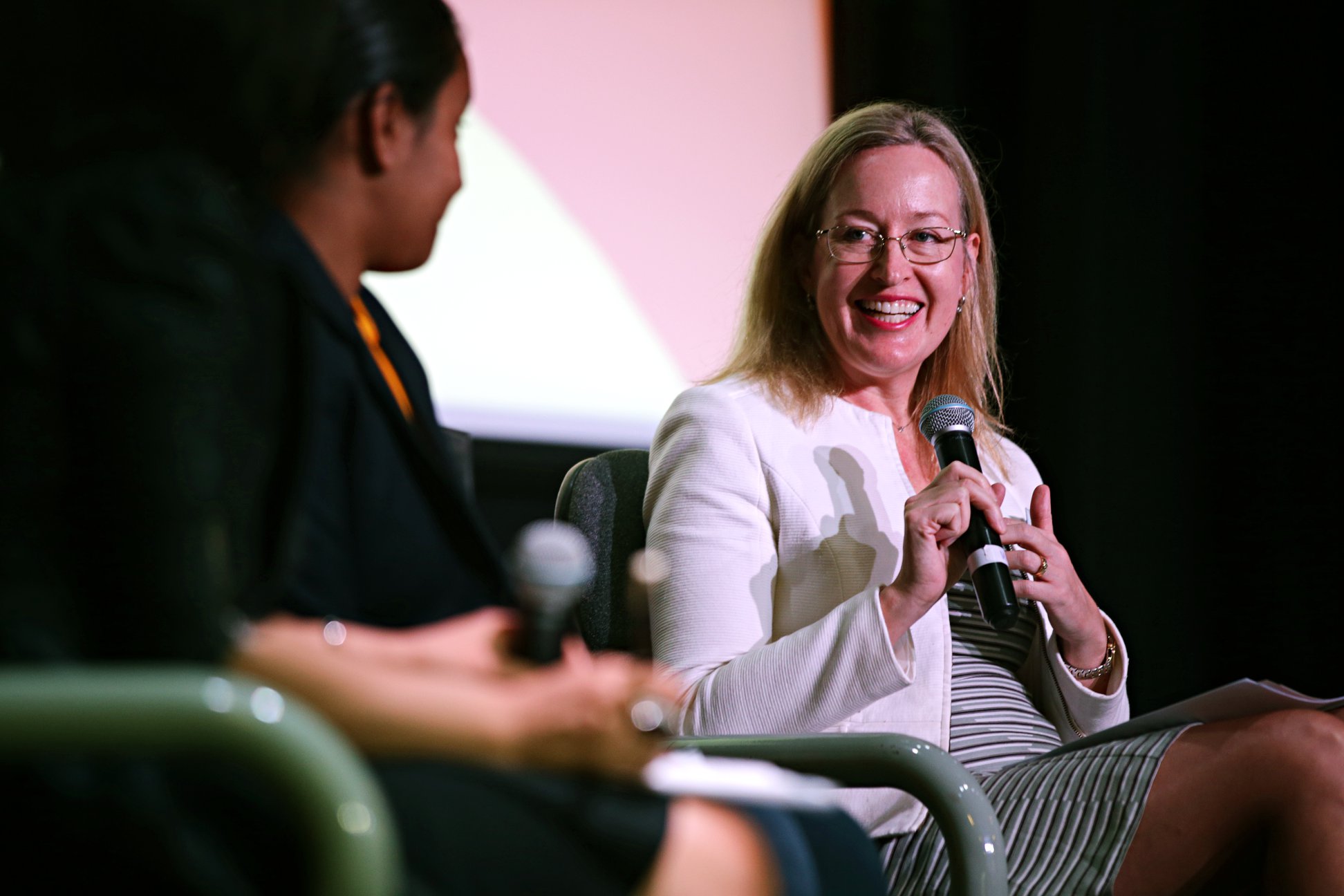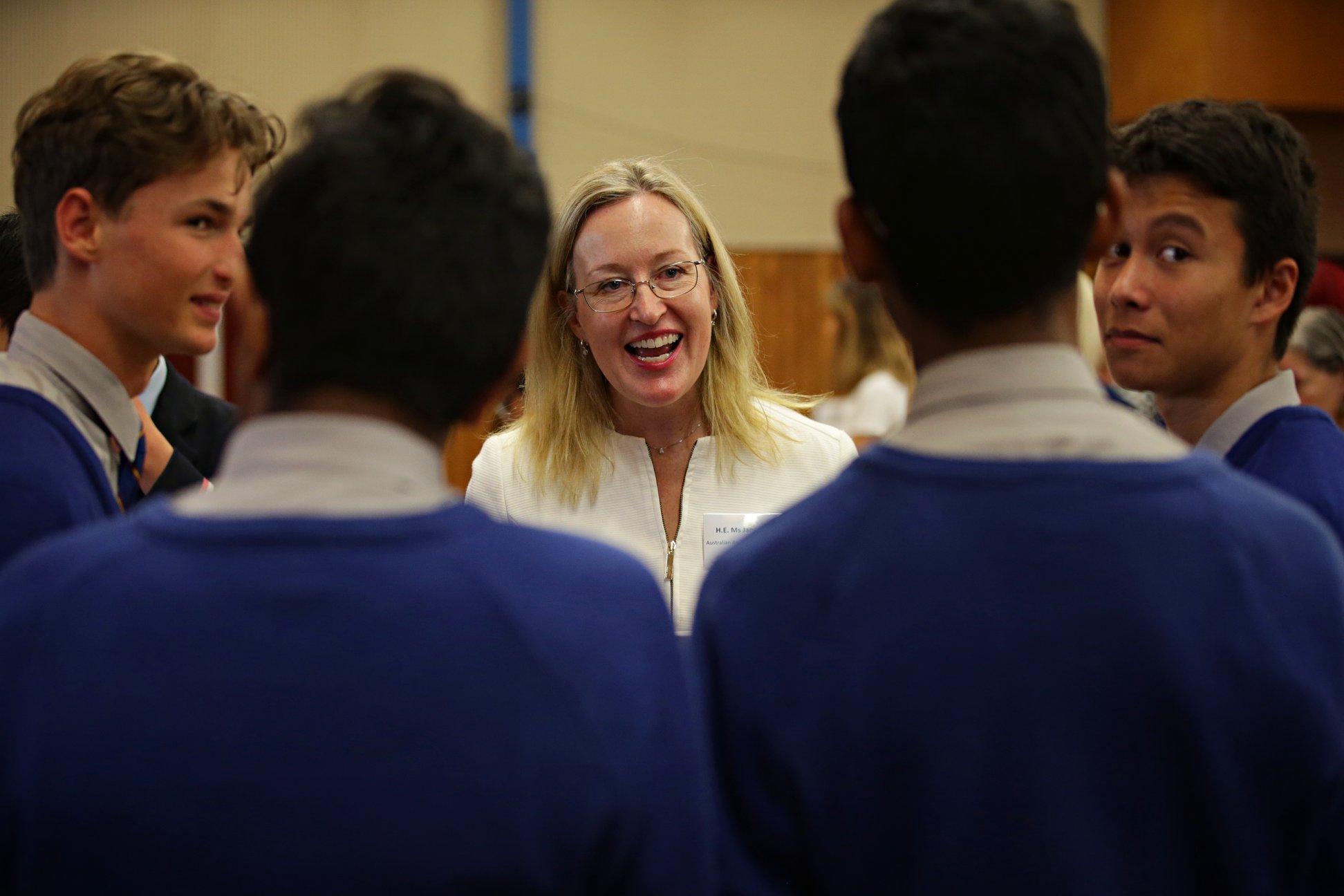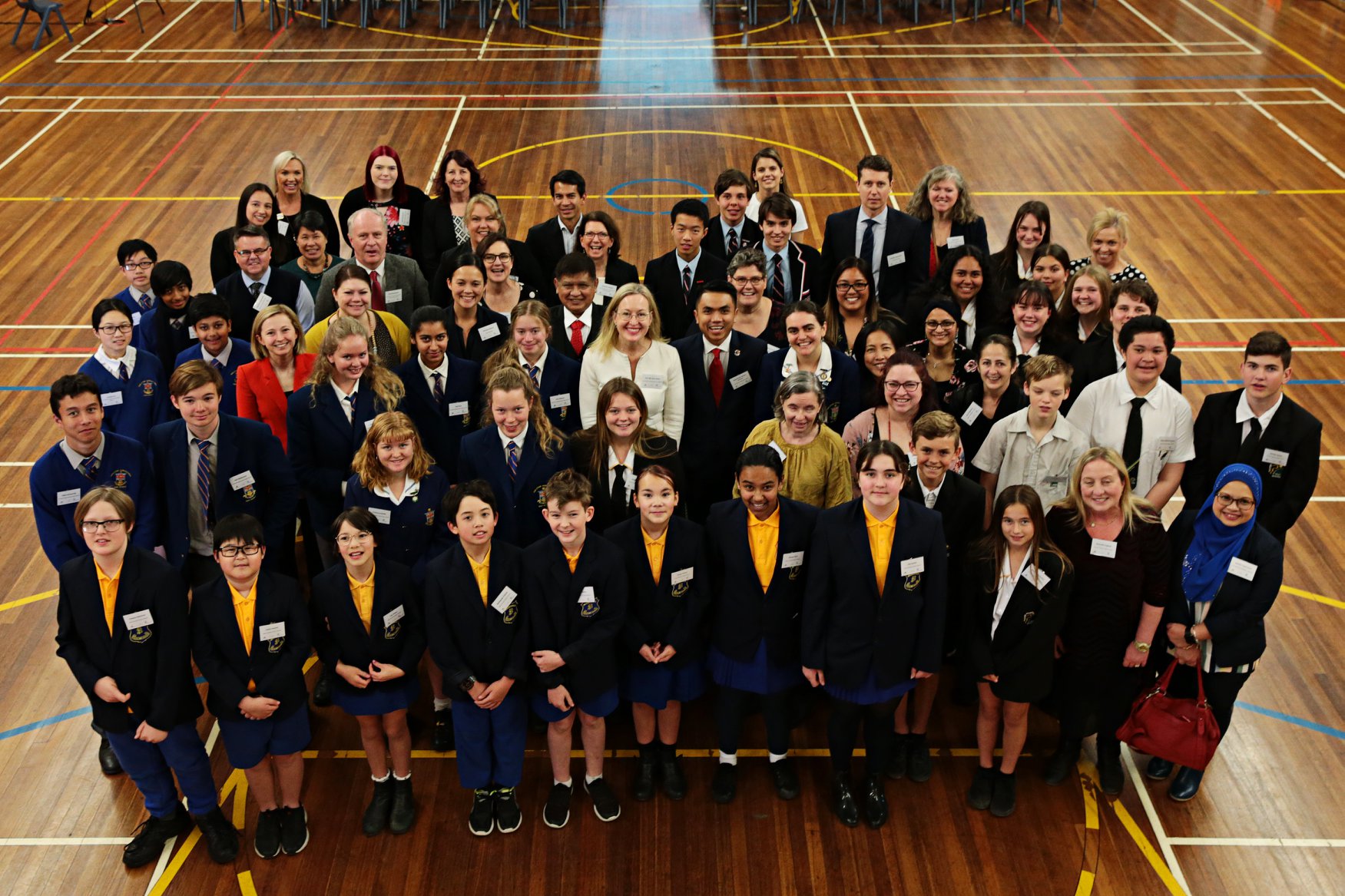Interview
Engaging ASEAN through Education
Following on from the ‘Engaging ASEAN through Education’ event, AEF sat down with Her Excellency, Australian Ambassador to ASEAN, Ms Jane Duke to discuss international education opportunities, how young Australians can better prepare for future international career pathways and how education is pivotal in Australia’s relationship with our region.

The year 2019 marks 45 years of Australia’s diplomatic relations with ASEAN. Over the years, the ASEAN-Australia relationship has grown into the vital strategic partnership that it is today. Australia and ASEAN have extensive cooperation on political, security and economic
cooperation issues, but the heart of our relationship is centred on our strong people-to people links.
People-to-people ties, in particular through education links go back decades and are a vital
component of the ASEAN-Australia relationship. Our education ties continuously grow
through programs such as the New Colombo Plan & Australia Awards. More than 100,000
ASEAN students’ study in Australia each year. ASEAN countries - Indonesia, Vietnam and
Myanmar –represent three of the top five recipient countries for the Australia Awards
scholarships, and since 2014, the New Colombo Plan has supported over 60,000 Australian
students undertaking long and short-term study in ASEAN countries.
Education-based partnerships play a key role in deepening students’ knowledge and
understanding of the ASEAN nations, realising the benefits and challenges of regional
dialogue and developing intercultural understanding. These initiatives open doors to
invaluable educational experiences for Australian and ASEAN students and help our future
leaders build connections and forge lasting relationships.
In September 2019, I had the opportunity to visit my old high school, which was one of the
first Australian schools to be partnered with Brunei Darussalam under the Australia-ASEAN
Building Relationship through Intercultural Dialogue and Growing Engagement (BRIDGE)
School Partnerships Program. The program was delivered by the Asia Education Foundation
(AEF), and supported Australia-ASEAN Council. It was inspiring and impressive to see and
hear from the students and their teachers what they are learning about our region.
Our young leaders are engaged, outward looking, enthusiastic and thoughtful. The people-to-people links forged through education can be transformative and can open doors to
whole world of new opportunities and possibilities.
Interview questions have been developed based on those asked by students at the ‘Engaging ASEAN through Education’ event.

What do you see as the three most important reasons for Australia’s ongoing engagement
with ASEAN and what can young Australians do to support that relationship in the future?
ASEAN sits at the heart of the Indo-Pacific region, strategically, economically and
diplomatically.
For over 50 years, ASEAN has helped the countries of Southeast Asia to build trust, create
habits of dialogue and pursue economic integration. ASEAN has helped to minimise conflict
between its 10 members and has provided stability for the broader region – deftly managing
its external relations with the region’s major powers.
ASEAN serves as the region’s diplomatic convenor, bringing together leaders to manage the
region’s key strategic challenges through dialogue, cooperation and respect for rules-based
order. Australia has long-valued ASEAN’s ability to convene regional powers to consider
important strategic and security issues. We are an active member of ASEAN’s forums,
particularly the East Asia Summit, which we see as the region’s premier leaders’ forum for
managing strategic risk.
Australia’s future peace, prosperity, stability and our success, is inextricably linked to the
success of our ASEAN neighbours. A region without ASEAN, or an ASEAN that finds its
centrality and unity fractured would be detrimental to all of us.
Secondly, the Australia and the nations of ASEAN are also significant economy partners.
Southeast Asia is one of the most important economic regions in the world. Over the past 15
years, ASEAN’s combined economy has quadrupled to approximately US$2.5 trillion. It is an
increasing destination for global FDI.
Taken together, ASEAN is Australia’s third largest trading partner, and much of the rest of our
trade passes through ASEAN member state waters on its way to Australia’s top two trading
partners.
In 2018-19, two-way trade totalled was over $100 billion, and two-way investment was over
$200 billion, underpinned by one of ASEAN’s highest quality free trade agreements, the
Agreement for the ASEAN-Australia-New Zealand Free Trade Area (AANZFTA).
With its large and growing population of 630 million people, young working age population
and rising middle class, ASEAN has the right metrics to underpin its prospects for continuing
economic success.
Finally, the nations of ASEAN are in Australia’s neighbourhood, the centre of the Indo-Pacific
region where Australia’s future will be built.
A strong relationship with ASEAN based on mutual understanding is important not just for
common security or economic interests – but also because a good relationship goes the very
heart of how Australia sees its place in the world.
Young people growing up in Australia today are growing up in a society that is culturally,
linguistically, ever more connected to Southeast Asia.
Almost one million Australians hail from Southeast Asia and our cultural identity increasingly
reflects our geographic location in Asia.
People-to-people ties are essential to diplomatic, economic and education engagement
between ASEAN and Australia. These are the ties that bring opportunity and help us face
challenges together.

How did your education in Australia prepare you for your role as Australia’s Ambassador to ASEAN? Knowing what you do now, what would you have changed, if anything?
My high-school education in Australia provided the opportunity to study foreign languages. I
was able to undertake a one-year exchange program to Japan back in 1986.
This experience opened my eyes to a new world, of language, of history, of culture and about
myself.
In fact, I doubt I would have taken the course I have in my life, if I had not embarked on that
program.
That opportunity sparked an interest in the world beyond Australia’s borders and led me to
pursue a career where every day I work with Australia’s neighbours in the ASEAN and broader
Indo-Pacific to achieve our shared interests in a secure, stable and prosperous region.
Learning foreign languages, participating in programs like the Asia Education Foundation’s
National Australia-ASEAN Youth Forum or studying overseas are all fantastic ways to learn
more about other cultures, understand Australia’s place in the word, and build lasting
friendships and connections with your peers across the region.
The Australian Government supports such opportunities for young Australians to work and
study in the region through the New Colombo Plan and for Southeast Asian students to study
in Australia via the Australia Awards program.
Read more about our 'Engaging ASEAN through Education' event and view the event album.
About the Asia Education Foundation
Asia Education Foundation (AEF) is Australia’s premier organisation supporting schools to educate a new generation of globally competent young Australians. AEF is focused on ensuring that all Australian students develop a deep understanding of Australia and our place in the world, intercultural understanding and language skills to communicate and collaborate with the peoples of Asia and the world. AEF is a national not-for-profit initiative of Asialink at The University of Melbourne.
Media Contact
Natasha Redden, Communications Manager, Asia Education Foundation
Direct: 03 8344 3569
Mobile: +61 431 452 261
Email: n.redden@asialink.unimelb.edu.au